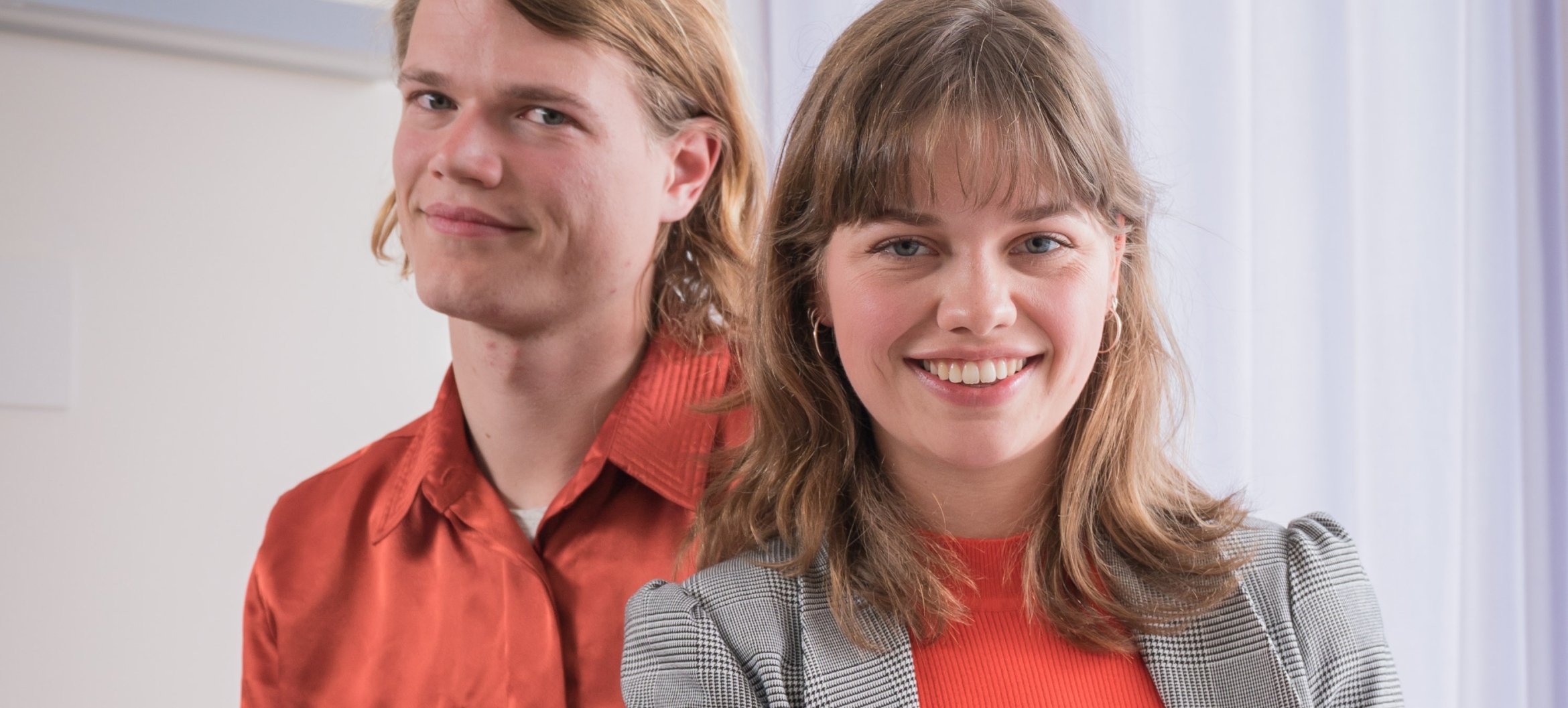Explaining informal care through the medium of the graphic novel
Art and science come together in Melanie Kranenburg and Niek van Ooijen’s graduation project. Together with Radboud University Nijmegen, they made a graphic novel about palliative care.

In partnership with Radboud University Medical Center in Nijmegen, Melanie and Niek made a graphic novel about informal carers in the palliative phase. The book is based on scientific research carried out by researcher Maaike Haan. Also involved in the project were a number of experts and people with experience of the medical world and informal care.
Niek: “Radboud UMC approached the academy itself and our course pitched for the project. They were very enthusiastic about the trial pages we and some of our classmates produced. They asked if we would do this as our graduation project and Melanie and I agreed."
Melanie: “I have seen from close up what informal care involves and I thought it was a story that needed telling. And Niek and I work well together."
Niek: "In the book, two stories about informal carers run in parallel; each story was written and illustrated by one of us. My story is about a young adult, Eva, who cares for her father Louis, a COPD patient."
Melanie: “My story is about a pensioner, Geert, who cares for his wife Marie, who has cancer. The two stories highlight different aspects of informal care; as such, although they are different they also complement each other."
Niek: “The stories alternate with one another. So for example, in her story Melanie talks about the death of one of the subjects, which is followed by part of my story about the aftermath of the other subject’s death."
Melanie: "As a reader, you follow Marie and Louis’s slow declines. You see them slowly move towards the ends of their lives and see how they need ever more intensive care. Geert and Eva’s roles as informal carers come to dominate their lives more and more. The story depicts the problems informal carers face daily in the form of a dramatic narrative."
Niek: “Researcher Maaike Haan takes the graphic novel with her when she gives presentations on her research and it is clearly meeting a need. That's great to hear. We are going to accompany her to the Graphic Medicine conference in Brighton, a gathering for doctors who draw about their experiences in healthcare."
Melanie: “It has ended up being a good graphic novel that will really be of value to people. How great is that?"
The graphic novel is being published by Radboud UMC under the partnership project with a print run of 1500 copies. These copies will be distributed to hospitals and used for public information around the theme of informal care.
Video by Collector.
https://studiocollector.com/


